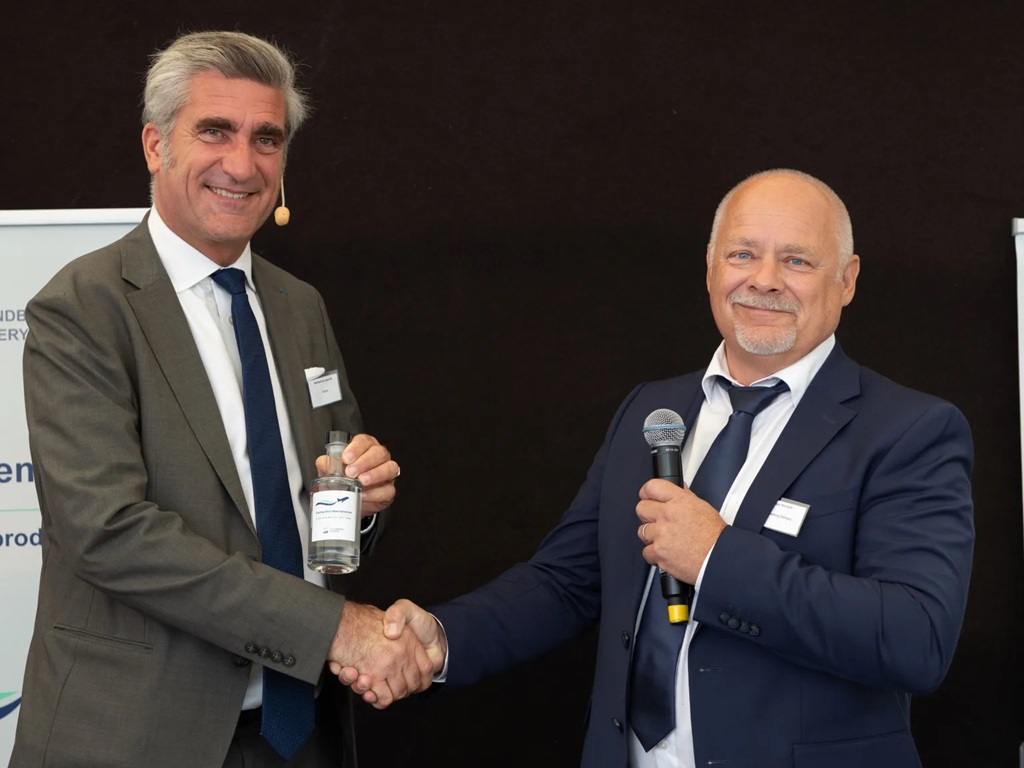Denmark’s largest refinery, Kalundborg Refinery, has achieved a milestone in producing more sustainable aviation fuel. For the first time, the refinery is supplying Airbus with an innovative, low-aromatics jet fuel designed to reduce contrails and improve air quality around airports. The initiative is part of Airbus’s participation in the European PACIFIC project, which will rigorously test and demonstrate the environmental benefits of this new fuel.
This milestone is being marked by an event today at the Kalundborg Refinery, attended by the Chairman of the Transport Committee, Rasmus Horn Langhoff, representatives from Airbus and Green Transition Denmark. The refinery is demonstrating that the product can be produced on an industrial scale and is inviting industry stakeholders and authorities to engage in dialogue on potential pathways for implementing the new fuel in support of climate and environmental objectives. Kalundborg Refinery supports renewable aviation fuels, viewing low aromatic fuel as a key interim solution until alternative fuels are fully developed and commercialised.
Contrails – the white trails left behind by aircraft account for up to two-thirds of aviation’s climate impact. Kalundborg Refinery’s new jet fuel, developed with a significantly lower aromatics content, enables cleaner combustion and reduces contrails and particle emissions. The benefits are immediate: fewer harmful effects on the climate and cleaner air for communities.
“The aviation sector is actively seeking solutions that address both climate and environmental challenges. We’re proud to demonstrate that this fuel can be produced on a scale that offers tangible benefits, from reduced contrails to lower particle emissions,” says Claus Navntoft, Managing Director, Kalundborg Refinery.
Kalundborg Refinery owned by the Klesch Group sees this innovation as a critical bridge until renewable aviation fuels achieve full market maturity.
“We are proud of our cooperation with Airbus. It underlines the product’s potential and the great interest from the industry. This fuel can already be produced on an industrial scale, reducing aviation’s global climate and environmental footprint. Therefore, we would like to invite the industry and the authorities to engage in dialogue on how the fuel can be implemented,” says Claus Navntoft, Managing Director, Kalundborg Refinery.
For several years, the government has had the ambition to support the green transition of the aviation industry. This was reflected, among other things, in the agreement on Green Aviation in Denmark from 2023, in which the government, the Green Left, and the Red-Green Alliance allocated approximately DKK 1 billion to initiatives to promote green air transport, including the development of fuels with lower aromatic content.
The development of low aromatic jet fuel should be seen in this context. During the process, Kalundborg Refinery has been in ongoing dialogue with stakeholders such as Green Transition Denmark, which sees significant potential in the fuel.
“With solutions such as low aromatic jet fuel, Denmark is taking responsibility – not only for its own aviation sector, but also for the global transition of aviation. This shows that green transition in aviation can happen here and now – when the will is there. Low aromatic jet fuel is a clear bounty for the climate and for thousands of people who are exposed to air pollution in and around airports daily. Therefore, we encourage politicians in Denmark and the EU to create the framework for it to be rolled out on a large scale quickly,” says Jeppe Juul, Head of Transport Policy, Green Transition Denmark.

